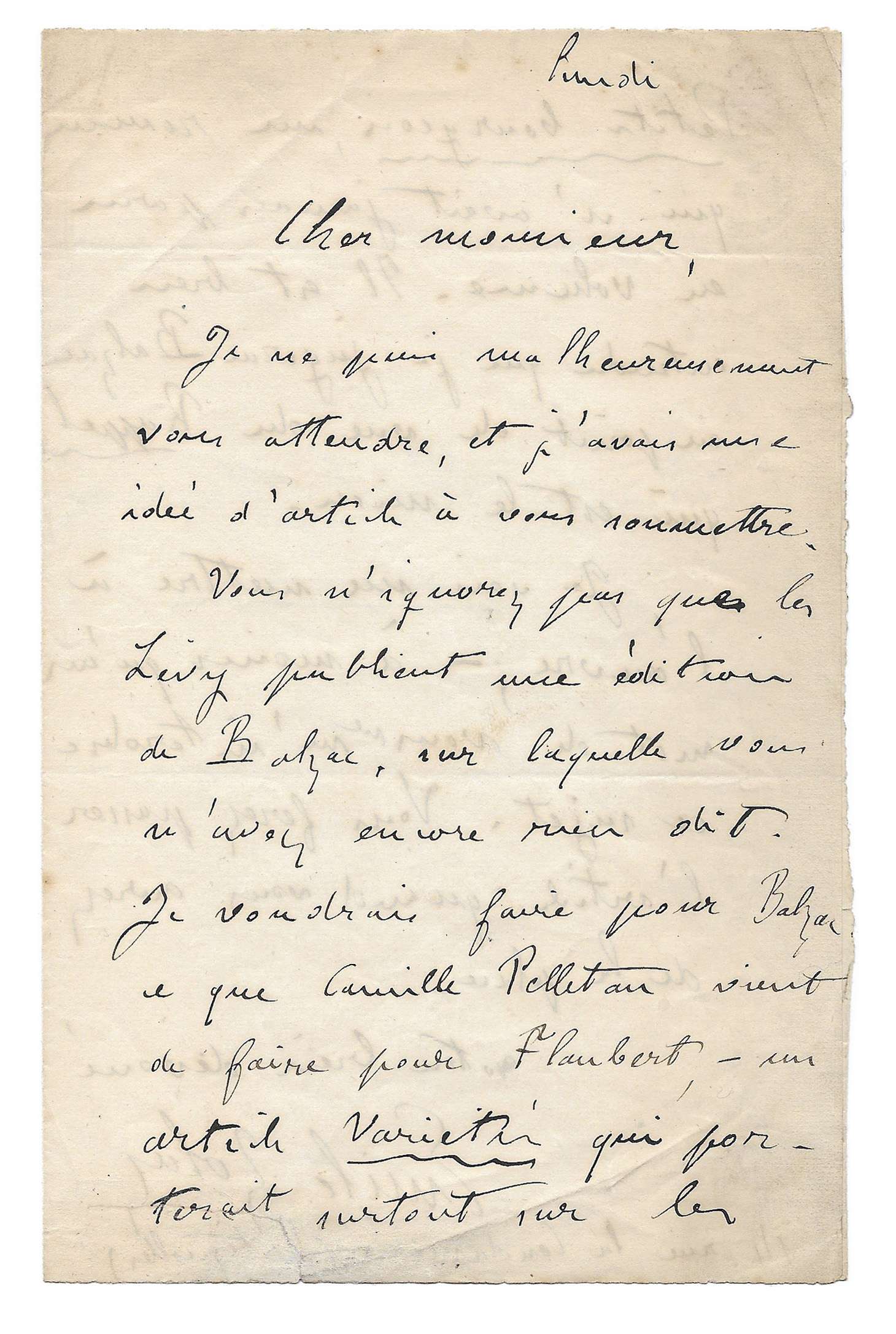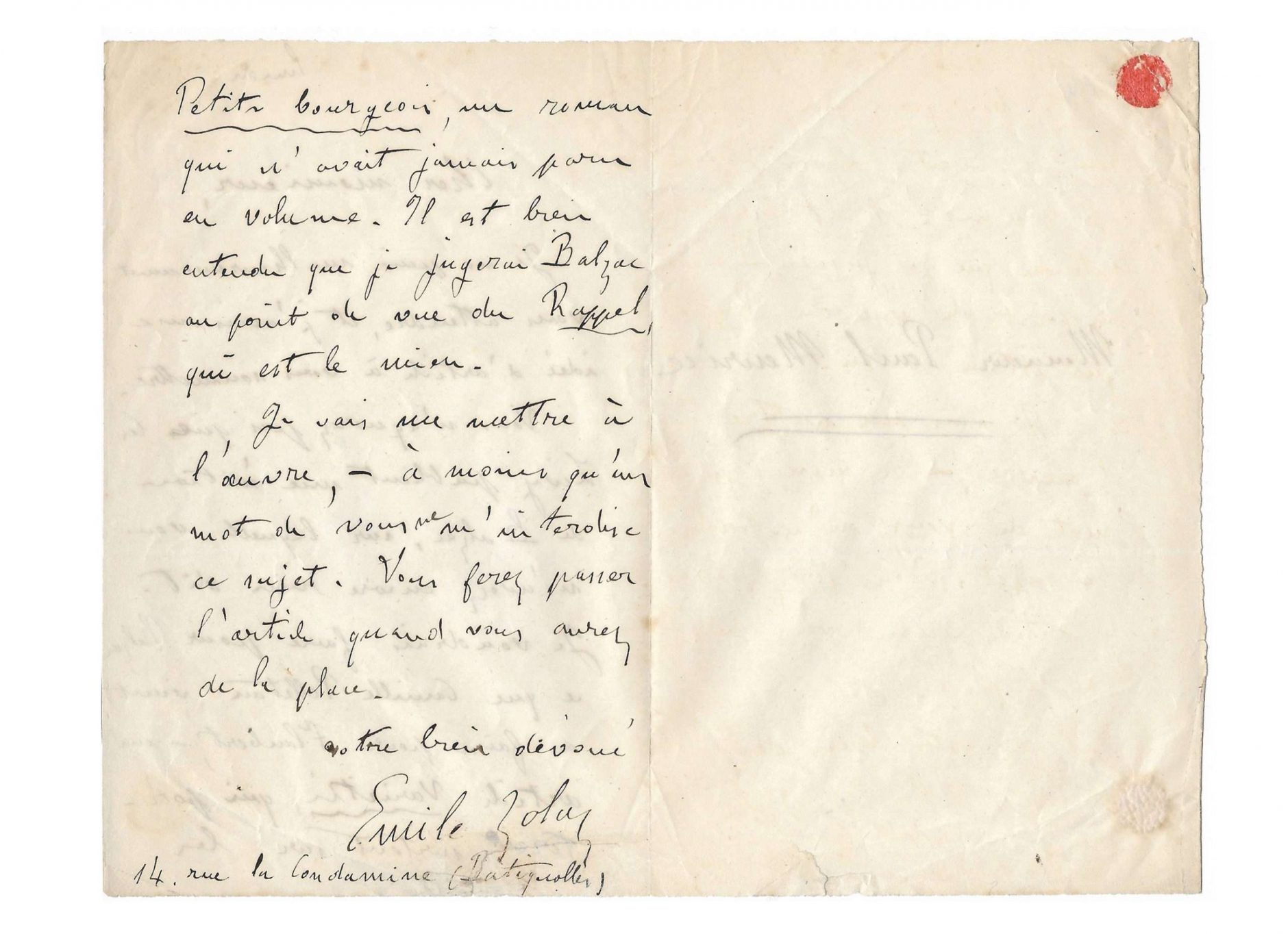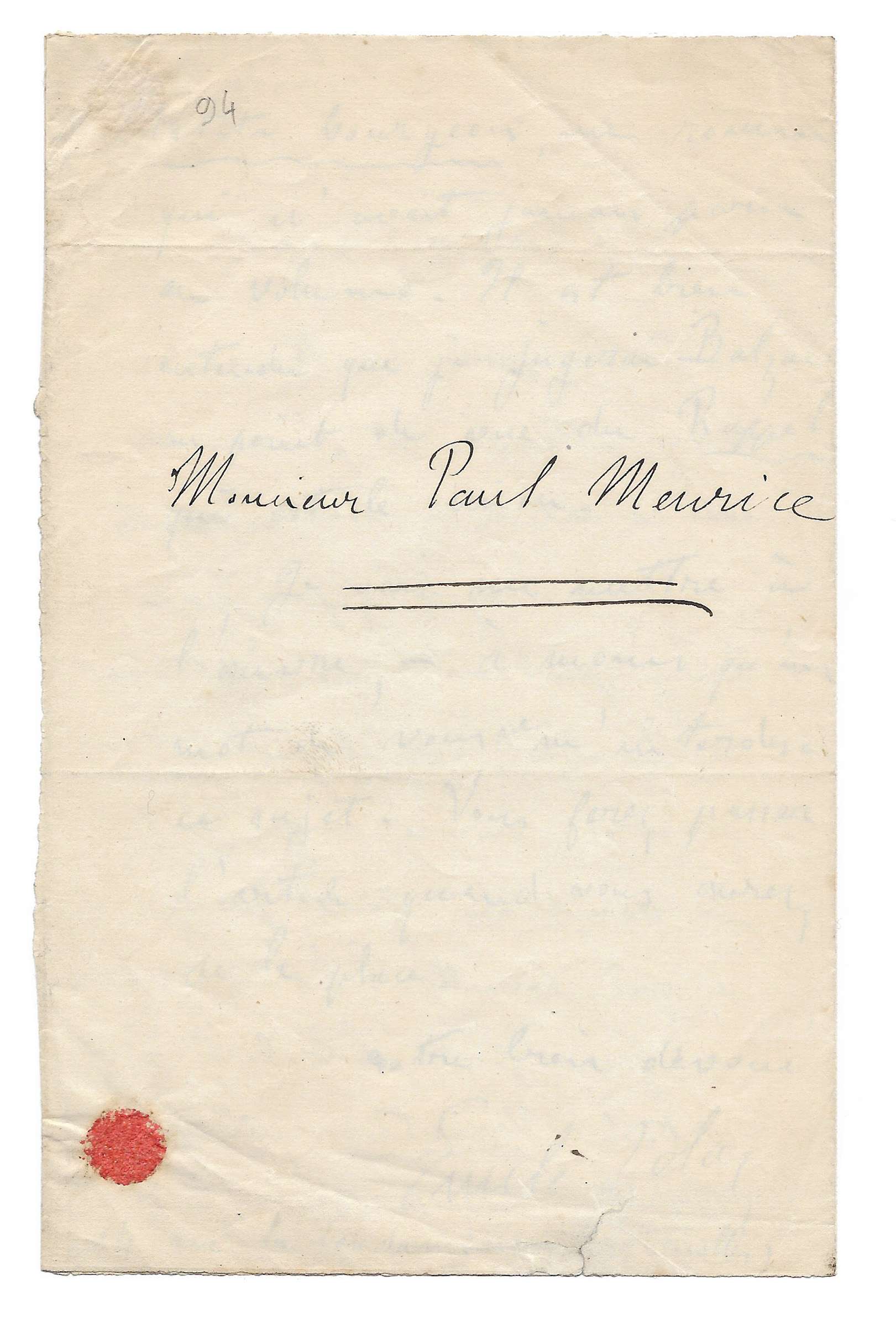ZOLA, Emile (1840-1902)
Autograph letter signed « Emile Zola » to Paul Meurice
Paris, Monday (February 1870), 2 pages in-8, address on verso
« I would like to do for Balzac what Camille Pelletan has done for Flaubert…”
Fact sheet
ZOLA, Emile (1840-1902)
Autograph letter signed « Emile Zola » to Paul Meurice
Paris, Monday (February 1870), 2 pages in-8, address on verso
Professional repair on bottom of first page
Nice Zola letter, looking on writing an article on Honoré de Balzac, a few months before the publication of the first volume of Rougon-Macquart.
« Cher Monsieur,
Je ne puis malheureusement vous attendre, et j’avais une idée d’article à vous soumettre.
Vous n’ignorez pas que les Lévy publient une édition de Balzac, sur laquelle vous n’avez encore rien dit. je voudrais faire pour Balzac ce que Camille Pelletan vient de faire pour Flaubert – un article Variétés qui porterait surtout sur les Petits bourgeois, un roman qui n’avait jamais paru en volume. Il est bien entendu que je jugerai Balzac au point de vue du Rappel [Journal que dirigeait Paul Meurice et qu’il avait co-fondé notamment avec Victor Hugo] qui est le mien.
Je vais me mettre à l’oeuvre, – à moins qu’un mot de vous m’interdise ce sujet. Vous ferez passer l’article quand vous aurez de la place.
Votre bien dévoué.
Emile Zola ».
Zola hereby refers to the article written by Camille Pelletan in Le Rappel, of February 7, 1870. this article was a very positive review of The Sentimental Education, then Gustave Flaubert’s latest novel in November 1869. Emile Zola then planned to write a long article on Balzac, which was published in Le Rappel on May 13, 1870. According to Henri Mitterand, Zola’s article on Balzac displeased Victor Hugo and his friends because it was dithyrambique for Balzac, which would have cast a shadow over the Master’s supremacy, and strongly attacked the bourgeoisie. Émile Zola had a great life of admiration for Balzac and his Human Comedy, which inspired his own literary cycle, Les Rougon-Macquart (the first volume was published the following year, in 1871).





